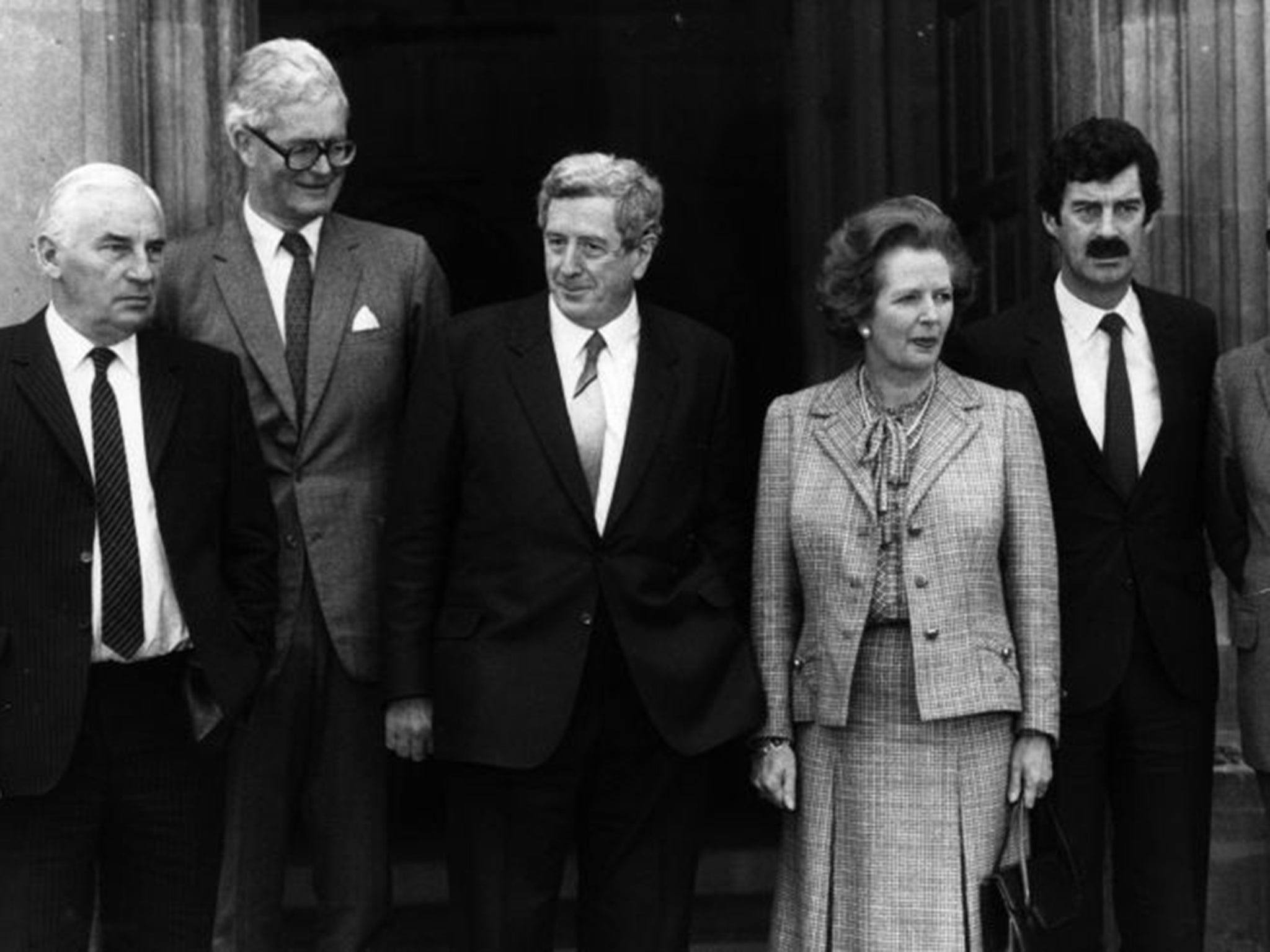Margaret Thatcher 'expressed fears of Asian rising' at Anglo-Irish summit in 1984
'Incomprehension' at Irish nationalists' demands in 1984 led to fears of consequences among UK ethnic minorities

Your support helps us to tell the story
From reproductive rights to climate change to Big Tech, The Independent is on the ground when the story is developing. Whether it's investigating the financials of Elon Musk's pro-Trump PAC or producing our latest documentary, 'The A Word', which shines a light on the American women fighting for reproductive rights, we know how important it is to parse out the facts from the messaging.
At such a critical moment in US history, we need reporters on the ground. Your donation allows us to keep sending journalists to speak to both sides of the story.
The Independent is trusted by Americans across the entire political spectrum. And unlike many other quality news outlets, we choose not to lock Americans out of our reporting and analysis with paywalls. We believe quality journalism should be available to everyone, paid for by those who can afford it.
Your support makes all the difference.Margaret Thatcher voiced fears of an Asian rising in Britain if Irish nationalists were allowed to express their identity in Northern Ireland, newly declassified government files reveal.
In a peace-building summit between the then Prime Minister and Ireland’s premier Garret FitzGerald in 1984, Mrs Thatcher said she failed to understand why nationalists were calling for reforms in policing, justice, equality and power-sharing.
During talks in the run-up to the 1984 Anglo-Irish Agreement, the Tory leader warned Mr FitzGerald that “if these things were done, the next question would be what comes next? Were the Sikhs in Southall to be allowed to fly their own flag?”
During exchanges between the two leaders at Chequers, her official residence, she also claimed that permitting Dublin an official role in the running of Northern Ireland would plunge it into civil war. During the exchanges, which were described by witnesses as “rapid and vigorous”, Mrs Thatcher feared the wider consequences of addressing Catholic alienation in relation to ethnic minorities in Britain.
According to declassified files released by Dublin’s National Archives, Mrs Thatcher revealed “incomprehension” as to what Irish nationalists wanted. Mr FitzGerald, the fomer Fine Gael leader, said the minority felt Irish and part of the majority of the island of Ireland “from which they had been cut off by an arbitrary act”. The British had drawn a line around the six counties, creating a Protestant majority, and people were “set against each other within a narrow space”, he said. He insisted there was “hard evidence” of bias in Northern Ireland and the Ulster Defence Regiment were being used to “bully” Catholics. He warned Mrs Thatcher she needed to deal with the alienation of northern nationalists.
According to the files, Mrs Thatcher mistakenly said there had been 2,500 deaths in the security forces, with Mr FitzGerald correcting her the majority were civilians, mostly Catholics. At one point Mrs Thatcher suggested redrawing the boundary between the north and south of Ireland which Garret FitzGerald immediately rejected, warning it would be a “fatal mistake”. The pair later discussed a federal Belgium-style model – under a monarchy. Mrs Thatcher said she “had not ruled it out, even though it would be attacked by unionists as an effective repartition.” She did reject Dublin’s suggestion for a new “system” of governing based on agreed policies between Britain’s secretary of state and an Irish government minister.
But Mrs Thatcher “reacted strongly” to the plan, claiming it amounted to “joint authority... That was definitely out”, she said. She accepted Catholics had problems getting jobs and admitted some areas – pointing to Lisburn as an example – “would not accept Catholics”
Mr FitzGerald said there had been agreement on an Irish government role in running the region, adding that he could not ask the nation to give up its territorial claim over Northern Ireland without such a deal.
During one exchange, as she argued Westminster was answerable for Northern Ireland, Mr FitzGerald retorted that “for 50 years they had not regarded themselves as being answerable”. “They had never permitted a question on Northern Ireland to be discussed in the house,” he said. “That was partly the reason for the present trouble.”